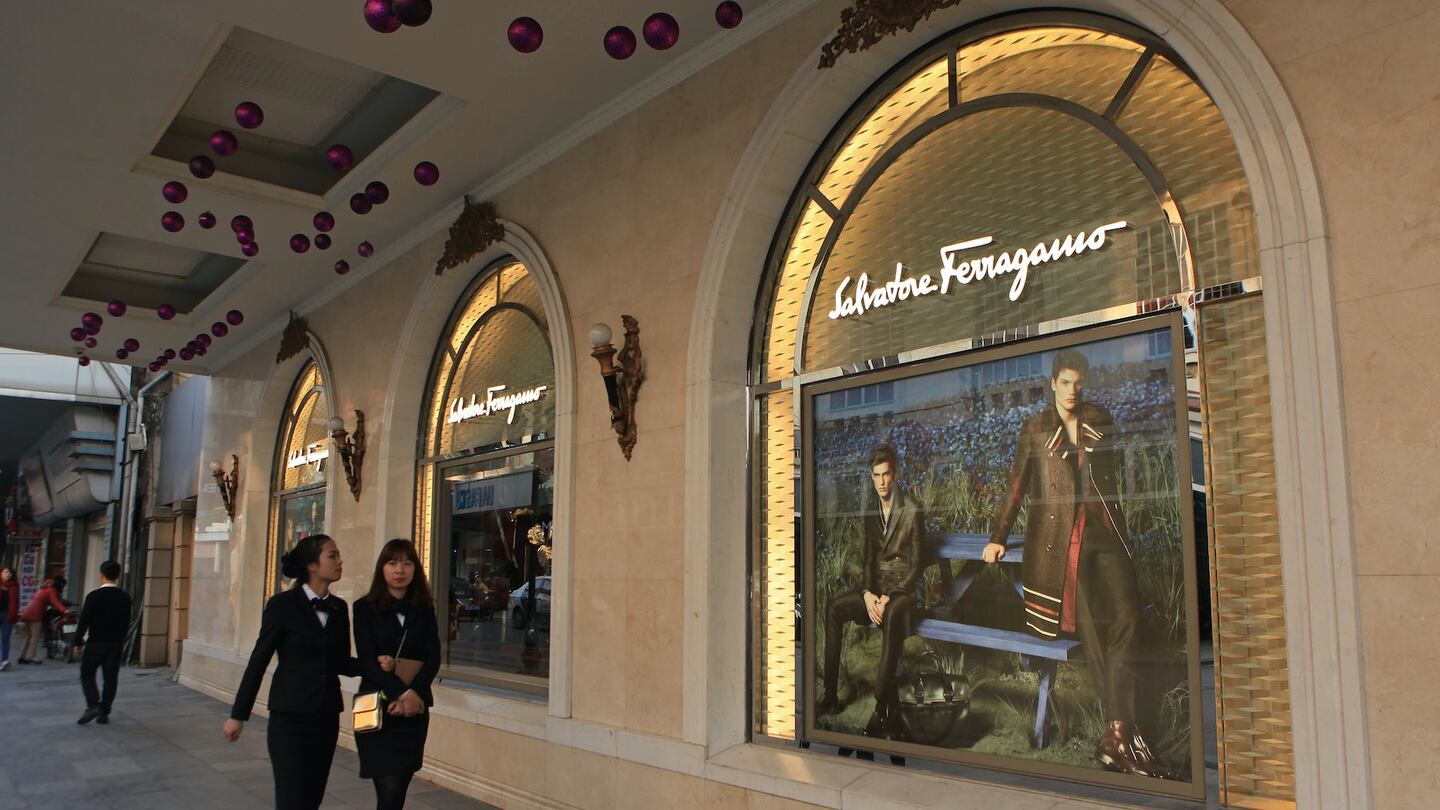
The Business of Fashion
Agenda-setting intelligence, analysis and advice for the global fashion community.

Agenda-setting intelligence, analysis and advice for the global fashion community.

MILAN, Italy — In the face of a plummeting stock exchange and predictions of a prolonged bear market, a group of Italian luxury executives remain cautiously, perhaps improbably bullish about the Chinese economy. "I think, sometimes, there is a misunderstanding," said Michele Norsa, the chief operating officer of Salvatore Ferragamo SpA, the Florence-based manufacturer of $860 oxford shoes and $190 silk ties. "The stock exchange is not really impacting the consumption market."
In an interview conducted during Milan’s biannual fashion week, Norsa projected confidence. "The mood, if you look at different categories, is still of growth,” he said.
The sentiment was echoed by Gian Giacomo Ferraris, the chief executive officer of Gianni Versace SpA. "We believe that even with this instability we'll have double digit growth" in 2016, he said, citing increased brand awareness, underrepresentation in Asian markets, and "an incredible power in the creative area." The volatile stock market, Ferraris said, could even be positive development. "Some competitors will exit," he said. "So there will be incredible opportunities for us."
This theory — that a wobbly economy could actually benefit luxury companies without a major presence on the mainland already — was echoed by other executives.
ADVERTISEMENT
"In China we have a very good distribution" of stores, said Remo Ruffini, the Chairman of Moncler SpA, the company best known for its $1,500 down jackets. "We don't have too many stores, around 25; I think it's important to build up the brand."
While these kind of upbeat statements are to be expected from a chief executive officer, in this case, the predictions aren't just blind optimism or positive spin: other luxury brands posted better-than-expected revenue for the fourth quarter of 2015. Burberry Group Plcreported that it had returned to growth in the months through October and December, while Richemont, the owner of the jeweler Cartier, reported just a 9 percent decline in the Asia Pacific Region against analysts' estimates of a 16 percent decline.
The same Italian executives, however, also sounded notes of caution. “The beginning of 2016 was quite shaky,” said Ferragamo’s Norsa. “It was already difficult to forecast the size of the growth, and mostly the location of growth.”
Ferraris, in a separate interview, gave a similar caveat. “I’m worried, but I have to be courageous,” he said. “But we are still under-penetrated.” The key, he said, is slow but steady expansion. “We don’t want explosive growth,” he said. “A company the size of Versace needs a constant growth rate.”
By James Tarmy; editor: Chris Rovzar.
This week’s round-up of global markets fashion business news also features Brazil’s JHSF, the Abu Dhabi Investment Authority and the impact of Taiwan’s earthquake on textile supply chains.
This week’s round-up of global markets fashion business news also features Dubai’s Majid Al Futtaim, a Polish fashion giant‘s Russia controversy and the bombing of a Malaysian retailer over blasphemous socks.
As luxury marketing hits saturation point in Dubai during the Muslim holy month, global brands are ramping up their local engagement in other Gulf cities including Riyadh, Abu Dhabi and Kuwait City.
Chanel, Louis Vuitton and Tiffany & Co are among the brands expanding in Perth, Australia in a bid to tap its mining, oil and gas wealth and newfound status as a travel hub.